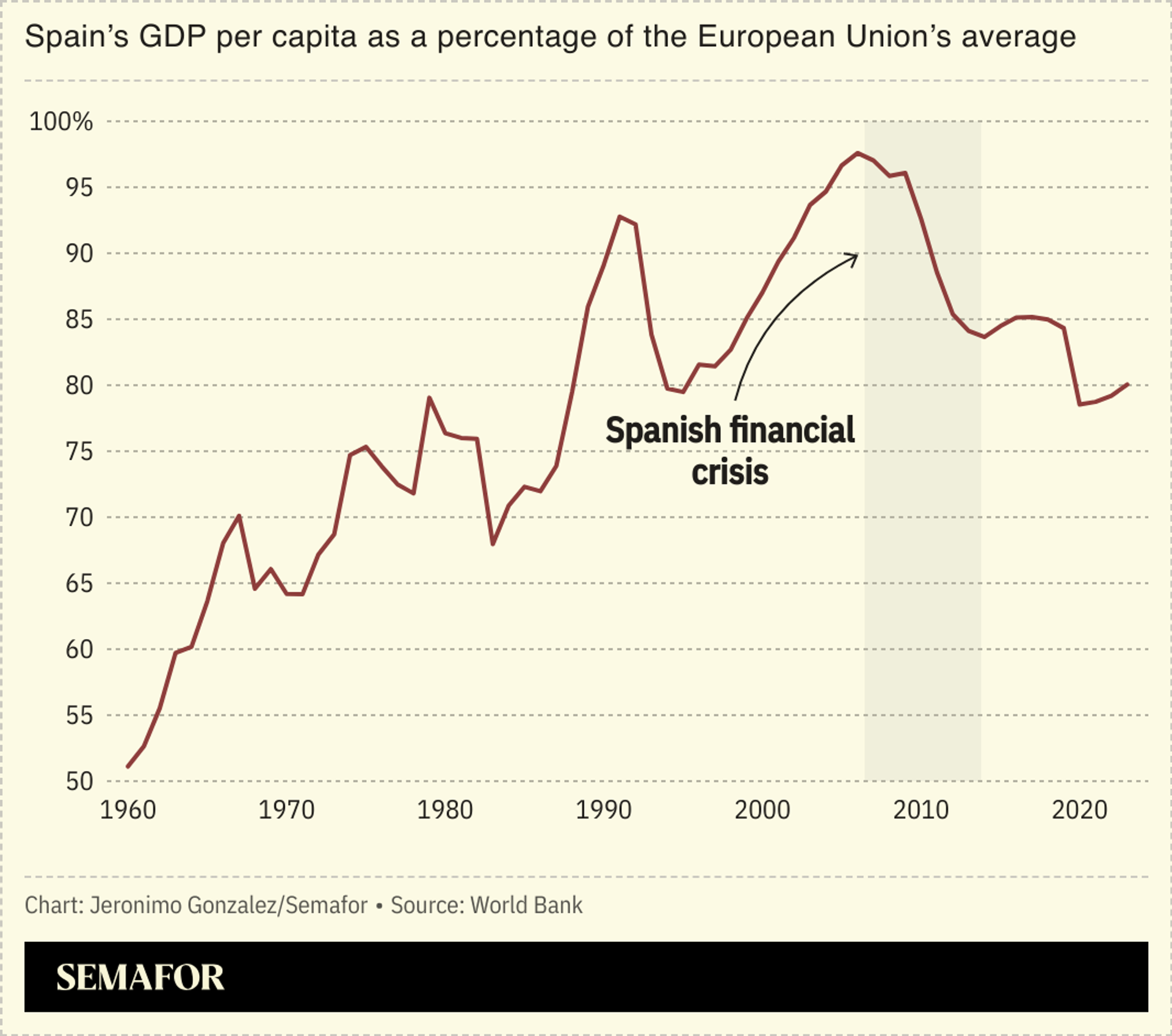The News
Southern European economies are on an upward curve, while Germany is stagnating, as the continent’s traditional laggards and powerhouses trade places.
The Spanish government raised its growth forecast for the next two years by two percentage points, citing private investment and consumption, and said it expects unemployment rates to fall. It’s the latest piece of good news for Madrid, while Portugal and Greece — traditionally “basket cases” — have also seen years of over-performance: The three economies have grown at more than double the eurozone average since the start of 2023, which Bloomberg credited to austerity measures that cut their crippling debt-to-GDP ratios.
Meanwhile, analysts downgraded Germany’s projected growth, blaming deep structural problems including a demographic change and international competition.

SIGNALS
Germany may have become a ‘victim of its own success’
Germany’s stagnating GDP outlook partly derives from its export-oriented economy, which has proven vulnerable to external shocks such as the COVID-19 pandemic and Russia’s invasion of Ukraine, an economics expert argued for the Robert Schuman Foundation. Berlin has sought to maintain a surplus above all else, but can no longer count on an upturn in external demand among trading partners like China to help it pull through these crises, he added. Germany has also been “painfully slow” to let go of industries past their sell-by date, and become “a victim of its own success” by seeing little reason to change those models despite the rise of new growth sectors like electric vehicles and artificial intelligence, The Guardian’s economics editor argued.
Spain benefits from tourism
Spain’s “traditionally in-the-red current account” has shifted thanks to a growth in tourism and new export markets including automobiles and services, the success of which is less dependent on the fortunes of its European neighbors, Global Finance reported. However, political uncertainty and a divided Parliament risks derailing that upwards trajectory, a senior economist at CaixaBank added. The country’s economic growth also risks being held back by its more interest-rate-sensitive manufacturing and construction sectors, an economist wrote for ING. Plus, unemployment is double the EU’s average, and other issues like a lack of affordable housing and high levels of public debt mean there is no room for complacency, a fellow argued in the Elcano Royal Institute.

